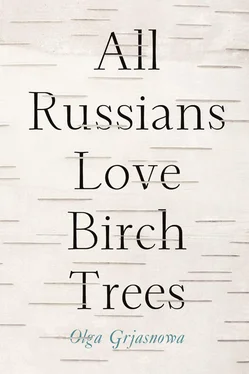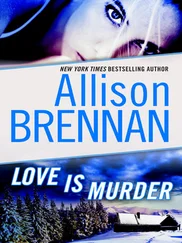Ismael had insisted that I sleep in his double bed.
“No discussion,” he had said and pulled the door shut behind him. He’d huddled up in the bathtub, a blanket between him and the cold enamel, the pillow in his lap. I went to check on him a couple of times during the night. Saw him turning in his sleep, trying to adapt his body to the bathtub’s contours. In the early morning he lay stretched out on the tiles, between the sink and the toilet, quietly snoring.
That morning, he ordered room service, hung his camera over his shoulder, and left me alone with the food. I slept until noon, got up, took a long shower, and left.
The city center was pure chaos. Lurid colors and crowds of people filling every inch between honking cars, open workshops, cafes, veiled mothers with small, screaming children, Bedouins, Osama’s Pizzeria, and bakeries that made pita bread on round metal plates. It was only when I stepped out on the street and noticed the reactions around me that I became aware that I was walking around half naked by Arab standards.
From one instant to the next, I lost my strength. I barely managed to make my way to an inner courtyard. Once there, I crouched down next to two overflowing trash cans, the smell of sewage in the air. For a moment, I was sure I couldn’t bear it any longer. I thought I might scream. Then the intensity of the pain slowly ebbed off, until I could stand again and go.
“There are two options.” I said to Ismael when I entered the hotel room. He was standing next to the window, in an undershirt and boxer shorts. Tall and sinewy. He’d just gotten out of the shower and his scent was a mix of musky aftershave and flowery shower gel. A cigarette hung from the corner of his mouth. He quickly reached for his pants that lay on the bed and put them on.
“So, there are only two options,” I started again. “Either I wear this dress and get stoned as a harlot, or I put on something longer. But then I look like a Jewish settler and I’ll still get stoned.”
Ismael stubbed out his cigarette in the ashtray, grinning. “I hope you’ll go with the first option.”
I sighed. “I knew you’d say that.”
“It’s not what you think. But I suspect it would be easier to save your life this way.”
I put my shopping bag down on the bed.
“What’s that?” he asked.
“Our picnic.”
“On the bed?”
I nodded.
“We don’t have any plates.”
“I bought some. Cutlery, too.”
Ismael flung the pillows off the bed and sat down. He crossed his legs and watched me as I emptied my bag: fresh bread, olives, hummus, falafel, cheese and pastrami from a European deli, fruit, and Malabi.
We sat across from each other, eating in silence. I spotted a long scar on Ismael’s forearm that looked like it had come from a burn.
“Where’d you get that?”
He shrugged: “A bullet.”
“Israeli?”
“I didn’t ask about the manufacturer.” He smiled, lowering his shoulders again. “Maybe a German one, who knows? They call it development aid here.”
There were many more scars on his arms and on his chin, too. I didn’t dare ask how he got those. Ismael lit a joint and handed it to me. That night he slept in the bathroom again.
It took me a long time to fall asleep. I tossed from one side to the next. Then I dreamed of Elisha. He was wearing his hospital gown, his mouth contorted in pain. He was suffering. I wanted to touch him but he wouldn’t let me, said that I had let him die.
We bounced in our seats as the car rumbled in and out of potholes. “We should’ve taken the donkey,” Ismael said and put in an old cassette tape. Bob Dylan. Ismael drummed the rhythm on the steering wheel. Barely one song in we were stopped by a road block. Two guys in bulletproof vests pointed the barrels of their guns at us. The Palestinian policemen were even younger than the Israeli soldiers, sixteen years old at most. We handed our passports to them through the windows before they ordered us out. They kept us in sight. Ismael asked one of the two whether he liked belly dancing. Once they finally dourly handed us back our documents, we continued on our way. From then on, we only listened to Fairuz.

We stopped in a small village and sat down in a restaurant with green plastic chairs that served shawarma. Once again I was the only woman in the room.
The wall across from the restaurant was full of graffiti. Somebody had written in green “ Allahu Akbar ,” and another one “Sister, fear Allah — don’t take off your hijab.” Next to that in unsteady handwriting, “Fuck Israel” and “Fuck PA, Fuck Hamas.” Farther down someone had added with a Sharpie, “Fuck me, if you want.”
Ismael followed my gaze and pointed toward the house in front of us. “Do you see the water tanks on the houses?”
I nodded.
“Israel fills them twice a week. And that’s it. If you use up the water too quickly, that’s your problem. No one will help you.” Ismael looked at me. “I hope that’s not too much for you to take in?”
“We didn’t have water either.”
“What?”
“In Baku we had a maximum of one hour of water per day, and not even regularly. In that hour you’d fill everything with water: tanks, tubs, bottles.”
“OK, you win.”
A swastika was etched into our table. I traced the lines with my fingers.
“So I was a part of Hamas,” Ismael said all of a sudden. “So what?”
I lifted my head. Our eyes met. I downed my glass of water and Ismael refilled it.
“But they didn’t help me either. You want to know how it all started?” Ismael didn’t wait for my answer. “Soccer. I played soccer. Two times a week. First we ran after the ball, then we ran after God. Religious school was introduced after the training. And suddenly I had a beard — it grows a lot faster with Arabs than you’re probably used to with European men. On the other hand, you’re from Azerbaijan. That’s more like here. I was wearing a long white robe and a hood.” He turned to me and laughed. “Fooled you! I never wore a robe, but I was devout. Always averted my eyes when there was a woman on TV. And my mother. We fought a lot. Now I regret it, but then I looked down on her because she didn’t wear a hijab.”
“I’m Jewish.”
Ismael fell silent. Shaking his head, he ran a hand through his hair. He fished a pack of dented Marlboros from his pocket, lit a cigarette, smoked it, threw it onto the ground, and crushed it with his boot.
“At least that’s not contagious. Let’s go.”
Ismael insisted on paying, despite my protests.

As we drove, I looked out the window at the passing landscape. Arab villages, Israeli settlements, mountains. We listened to music. Mashrou’ Leila. I got drunk on the music and the beauty of the scenery and I thought that the first Zionists to come to Palestine when the British Mandate had been in place must have been drunk on the landscape, too. Ismael lit a cigarette. Israel or Palestine, I didn’t care. I’d had enough.
“Are you Israeli?” he asked.
“I don’t even speak Hebrew.”
“I do. I’ve worked construction in Tel Aviv. Before the wall. Why didn’t you emigrate to Israel?”
“I wanted to, but my parents were against it.”
He abruptly turned toward me: “Are you fucking with me?”
“When did you leave Hamas?” I asked.
“After only half a year. There were long discussions. They even came to my house with presents once. Like the three kings, in case you know your Bible. They wanted to convince my parents, but my parents were Communists. Nothing doing. A friend who had stayed with Hamas declared a fatwa against me via Facebook. That’s when I knew I’d made the right decision.”
Читать дальше













